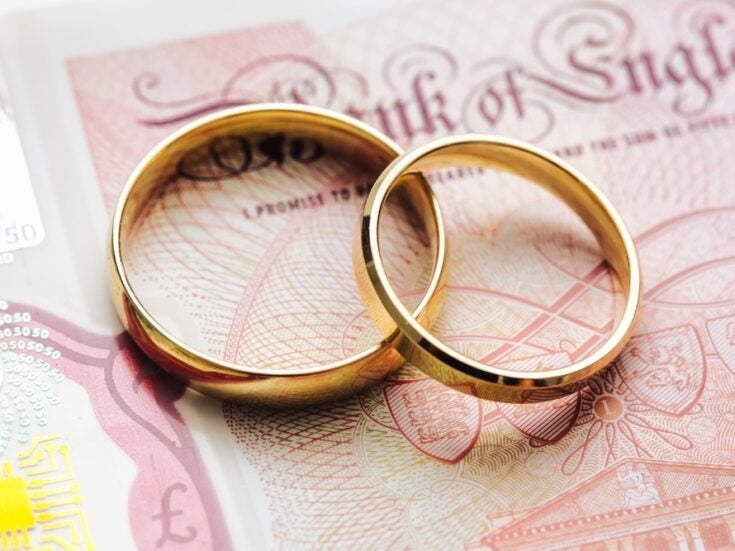
Now we know that Kate Middleton, the Duchess of Cambridge, is expecting a baby, we thought we’d revisit Caroline Garnham’s column on Royal succession
LIKE IT OR not, there’s nothing like a UK Royal wedding. I remember once attending the wedding of a daughter of an archbishop and was moved by the simplicity, symbolism and sheer beauty of the occasion. When I complimented the archbishop on the service, his wry reply was: ‘So it should be, we’re in the business!’
The Royal family is in the business of pomp and ceremony, a major part of the attraction of the UK to tourists and nationals alike. I am therefore eager to see how our Royal family will deliver on this occasion, the wedding of our future monarch. However, equally important is that Prince William’s bride is the likely mother of our future kings and queens, a topic about which there is growing debate. At the heart of our democracy, in the 21st century, is a law embodying sexual and religious discrimination, which surrounds the choice of our monarch. If Prince William were to produce a female first-born and subsequently a son, the male heir would take the throne in preference to his older sister.
The principle of ‘primogeniture’ is laid down in the Act of Settlement of 1701, under which men have automatic preference to the throne over older female heirs. Labour MP Keith Vaz thinks this is wrong. He has called for the succession laws to be modified such that if Prince William’s first-born is a daughter, ‘It is only right that she become Queen of England.’ However, it is not as simple as giving equal opportunities to males and females.
For this to become law, not only would a change in the law be necessary in the UK, but it could also require a change of law in every one of the other fifteen Commonwealth countries where the Queen is head of state, although this is far from clear. The requirement to engage with Commonwealth countries is in the preamble to the Act, and therefore not strictly a legal requirement but possibly more of a moral obligation to inform and debate. No one really knows.
Having said that, the island of St Lucia has backed the bid for a change to the Royal succession laws, as has New Zealand, while pressure is being put on Canada to do similarly.

Turning to religious discrimination, the monarch is the supreme governor of the Church of England. Under the Bill of Rights 1688, the Act of Settlement 1701 and the Acts of Union which are embodied in the Coronation Oath Act 1680 and the Accession Declaration Act 1910, the monarch has many religious restrictions, obligations and duties. The monarch cannot be a Roman Catholic, must join in Communion with the Church of England and must swear to maintain the established churches of England and Scotland. In addition, any monarch who marries a Catholic may not retain their throne and any heir who marries a Catholic is removed from the line of succession.
The Earl of St Andrews and HRH Prince Michael of Kent have both lost their right of succession through their marriage to Roman Catholics. Their children, however, have not lost their place on the succession line, provided they are in Communion with the Church of England. The wife of the Duke of Kent, after she married in 1961, converted to Catholicism in 1994, but this conversion has not precluded the Duke from retaining his place in the line of succession. Their son, Nicholas, however, is a Catholic, so he does not retain his place.
The Fabian Society’s 2003 Commission on the Future of the Monarchy argued that it is difficult to align the current restrictions on religion and gender in relation to the succession with general concerns to end discrimination and promote equality. Fine words, but in practice it will not be as simple as the principle would lead us to believe.
Lord Falconer, who was Lord Chancellor when this was debated in 2005, agrees that the Act of Settlement and other associated Acts excluding Roman Catholics from the succession are ‘discriminatory’. However, he remains opposed to such a complex and controversial change. ‘For all practical purposes its effects are limited,’ he says. I can only presume from this that he means whoever is King or Queen has very little real power and their role is primarily ceremonial and symbolic.
I have worked with many families on their succession plans. From my experience, there is no right or wrong in a succession plan, other than the importance of having one and ensuring that it is certain, binding and not open to debate, argument or litigation.
I have seen too many family-owned businesses, and indeed family-run philanthropic foundations, fail to deliver their potential because of unnecessary and damaging power plays between siblings following the death of the founder. They could so easily and at much less expense have been resolved if the founder had given adequate thought and time to the preparation of an effective and binding plan. When that plan concerns the head of state, the issues and obstacles are fit for a queen.
Don’t miss out on the best of Spear’s articles – sign up to the Spear’s weekly newsletter
[related_companies]






